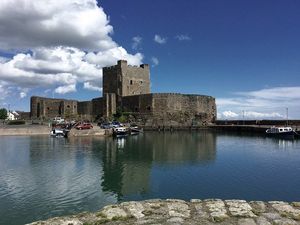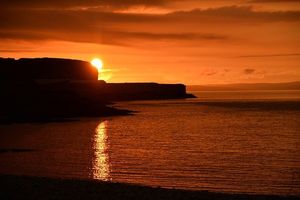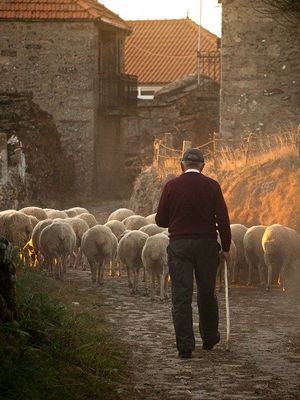The year 1859 stands out as a most memorable year in the history of revivals, not least in Ulster. It has been called ‘The year of grace’, when God rent the heavens and came down. Some 100,000 souls were brought to repentance and faith and added to Christ’s church in Ulster in the course of that year.
It is recorded that the fear of the almighty God fell upon the whole land. Ungodly sinners were smitten with conviction of sin and cried aloud to God for mercy. Worldly men were silent with fear, careless men became earnest, and drunkards and boasting blasphemers were solemnized. All people could attend to were the interests of their souls. Many who, up until then, had lived without regard to eternity began to feel that the end of all things was at hand. Houses of shame closed, public houses went out of business and the crime rate fell significantly. One historian of the revival has stated that ‘The ministers of God caught fire and the people of their respective communities came out to see them burn.’ Congregations of tens of thousands gathered under the preaching of the Word. After one evening service in March of the revival year at Ahoghill, ‘Many fell down on their knees in the muddy street amid chilling rain, and poured forth earnest cries and prayers.’
One gospel minister declared, ‘It were worth living ten thousand ages in obscurity and reproach to be permitted to creep forth at the expiration of that time, and engage in the glorious work of the last six months of 1859.’
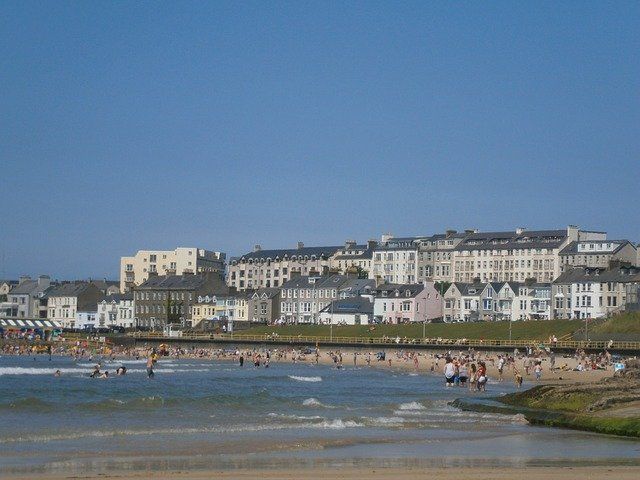
The railway labourer in Portrush
After returning home one Wednesday evening from some visits, one of the ministers in Portrush discovered a man waiting to speak with him. He was a railway labourer who had attended a meeting on the previous Monday evening and had been under a sore sense of sin ever since. During the week he had often had to leave the other men working with him on the line, and go behind the fence to weep. His proud heart was being brought down by God’s conquering grace, and he sought help from the minister.
He recounted to him the story of his guilt, how he had lived a life of disobedience to God’s commandments, and had never set foot in a place of worship nor bowed the knee to God. On one occasion he had been so drunk that he had lain down on the railway lines. He acknowledged that had it not been for some passer-by hauling him off, he would have been, by the next train, a mangled corpse, and his poor soul in hell. He asked the minister if it was possible for such a sinner to receive mercy. Being assured that indeed it was, and being directed to the same in the Word of God, he at last found forgiveness and relief. He was a young married man with ten children, and from that time became a regular attender at the house of God, established family worship in his home, and held a weekly prayer meeting there also. His wife and eldest daughter were saved afterwards.
A letter from Newtonlimavady
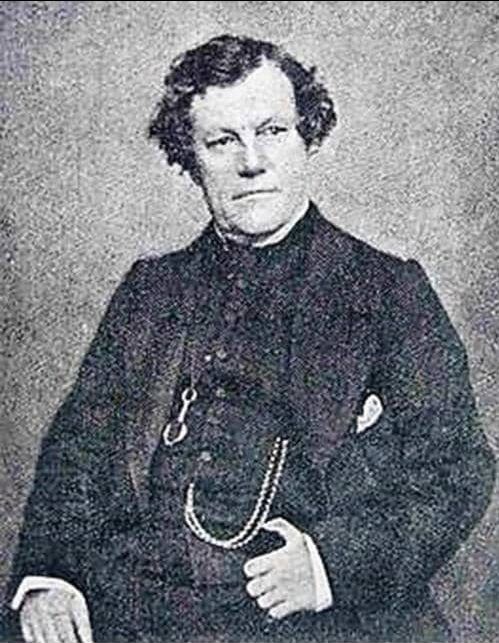
A preacher greatly used in 1859 in Ulster was Brownlow North. On one occasion he preached to 12,000 at Newtonlimavady. Here are two excerpts from a letter to him from a minister in that town. The letter is dated 17 August 1859.
‘I have waited until I could report respecting the influences of your visit. I have now reason to assure you that God has greatly blessed the word you addressed to us. A number of souls have been converted, and a still greater number are blessing God that their faith in Jesus and his written Word has been greatly confirmed. I bless God that the sickly and unscriptural fervours, that were so widely spreading, have been arrested, and society breathes the purer atmosphere of simple trust in the promises of God…
‘We have had several cases of conversion from Rome. We had two Roman converts with us lately: they are the finest specimens of young Christians I ever met. Oh, how different! One was like John, all love, so sweet and gentle; he had so put on Christ, that you could see nothing but Jesus: the other like Peter, all boldness and fire; he had so put on the armour of light, that he seemed as one who would venture to do and dare anything in the name of Jesus.’
The schoolchildren at Coleraine
In the town of Coleraine there was a school with the boys’ classrooms on the ground floor and the girls’ upstairs. One of the young boys was quite unable to concentrate upon his studies, and the schoolmaster judged that the distress he was under was of a spiritual nature. As the lad was not fit for work, the master advised him to go home and call upon the Lord in private. As there was another boy in the class who had found peace with God the day before, he was asked to accompany him.
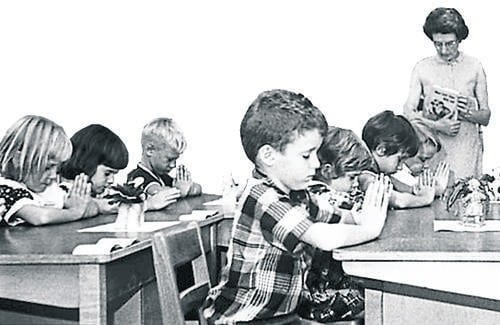
On their way home they passed an empty farmhouse. The distressed lad asked the other if they could go inside it to pray. They did so, and the lad in distress came there to know the Lord Jesus Christ as his Saviour, and all the heavy-ladenness of his soul was removed. Straightaway he suggested to his friend that they return to the school and tell the teacher what had happened. He went into the classroom with a beaming face, and uttered the simple but heartfelt testimony, ‘Oh, Sir, I am so happy: I have the Lord Jesus in my heart.’ The effect of these few words upon the other boys in the class was remarkable. One by one they slipped quietly out of the room. After a while, the master looked out of the window and saw a number of his class lining the walls of the playground on their knees, and crying to God for mercy. Their distress became so great that their cries could be heard, so he sent to them the lad who had already been a help to the one just converted, and he prayed with them and for them. Nor was this all! Similar soul concern was stirred in the girls’ school upstairs, and then also among the parents who heard the sounds and came to see what was going on. Many came under conviction of sin, and, says one account, ‘Soon every spot on the premises was filled with sinners seeking God.’

